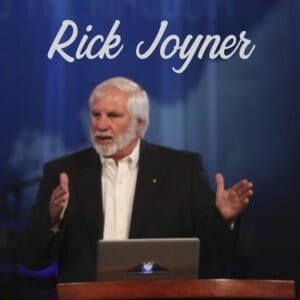A vision of the perfect church is likely as varied as the people who occupy it. That’s the way it should be! The Lord made each of us unique, so we should expect each to have a unique perspective on what the perfect church looks like.
Since many believe unity is a primary factor for the perfect church, let’s begin with this. Likewise, there are as many different ideas of what “perfect unity” looks like as there are people in a church. For example, unity by conformity can look more like a prison than a gathering of the King’s family. Nevertheless, unity of God’s people was obviously a high priority to the Lord, since He spent so much of His last night on earth praying for it. What did He mean by unity?
Any group, church or otherwise, is greatly shaped and influenced by its leadership. We can usually discern leadership’s maturity by its ability to tolerate debate, challenges, and differences with grace and wisdom. Those whose concept of unity is based on conformity can seldom tolerate debate or challenges, because this disturbs the conformity they seek. Those who perceive God’s unity as a unity of diversity will often welcome challenges and debate if done in the right spirit.
The Moravian Declaration of unity is often cited as an example we should follow: “In essentials, unity; in non-essentials, liberty; in all things, charity.” Such a mentality enabled the Moravians to have fellowship with and significant influence in nearly every major spiritual camp of their time. They did not do so by compromising their beliefs or vision but by treating those in every group with openness and respect, which in turn made those other groups open to them.
One reason we have so many divisions among Christians today is that we try to agree on too much. Israel was only required to be in unity about two things: worship and warfare. In worship, they were to worship Jehovah as He commanded. In warfare, if any tribe was attacked, the others were to mobilize to defend their brothers. How could a similar resolution change the body of Christ today? This could only happen in an atmosphere of devotion, respect, and openness toward other Christians and their differences rather than our current default of rejecting them.
That does not mean we should ever compromise our convictions. However, since we all see in part and know in part, wisdom dictates that we should at least remain open to those with different perspectives. Their perspectives may not conflict with ours yet add parts we do not yet see.
If our Lord made every snowflake unique, why is the church that is supposed to be His representative so boringly uniform? Since God made all mankind in His image, it takes the diversity of every tribe, nation, and culture to represent all that He is.
Again, God’s unity is a unity of diversity, not conformity. That is the unity we see in creation, which Jon Amos Comenius called “God’s second book.” The apostle Paul said the things that were made in creation speak of Him (see Romans 1:20), so the unity of creation is a unity of diversity.
If the people who get upset when things change in a church ever gain control of that church, it will be the last place on Earth to find God. Maybe that’s why it’s so difficult to find God in churches today. One of the most distressing verses in the Bible is Revelation 3:20, where Jesus is knocking at the door of His church to see if anyone will hear His voice and open the door.
The church is supposed to be the Lord’s house, not ours. So, our main goal in seeking to build His house should be to get our blueprints from Him. What would a church look like if it was built solely as a place where the Lord wanted to come rather than a building we thought might attract more people? Any place that attracts the Lord will attract more people. Isn’t He the One they came to see?
We may protest that our churches enjoy the many blessings of the Lord, but the Lord blesses many things He will not inhabit. Do we just want His blessings or Him?





















[…] Open the full article on the kingdomwinds.com site […]